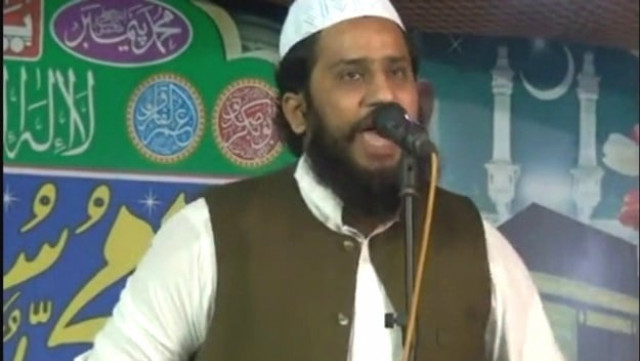Court seeks govt's reply over Masroor Jhangvi's name on terror suspects list
MPA tells IHC that his affiliation with "reputed party" JUI-F shows that he is not involved in any terrorist activity

Masroor Nawaz Jhangvi. PHOTO: File
Justice Mohsin Akhtar Kayani directed the interior ministry and home department secretaries to submit their response in the case.
Masroor, son of banned outfit Sipah-e-Sahaba's slain chief Maulana Haq Nawaz Jhangvi, through his counsel Tariq Asad has challenged the orders placing his name on the Fourth Schedule list of the Anti-Terrorism Act (ATA), 1997 in 2014.
Controversial cleric Masroor Jhangvi presented ‘peace award’
Tariq Asad, who is also the president of the Shuhada Foundation, a body affiliated with Lal Masjid cleric Maulana Abdul Aziz, submitted that the interior ministry had blocked Masroor's identity card.
Therefore, he added, the MPA was “unable to open and operate his bank account and draw his salary".
Despite being an elected representative and a legislator of the provincial assembly, the counsel pointed out, Masroor could not enter into an agreement or carry out a transaction of any kind because he was on the Fourth Schedule.
Masroor, who joined the the Jamiat Ulema-e-Islam Fazl (JUI-F) after being elected in the Jhang-II (PP-78) by-election in 2016, was placed on the terror suspects list through an order issued on May 9, 2014.
Jhangvi’s election to the provincial assembly caused a stir in the country due to fears his political ascent would increase sectarian divides in the dusty town of Jhang with a history of violence between Shia and Sunni communities.
Jhangvi’s assassinated father, Haq Nawaz Jhangvi, was a fierce anti-Shia cleric who founded a feared Sunni sectarian group, Sipah-e-Sahaba Pakistan. He was killed by suspected Shia militants in 1990.
The banned militant group Lashkar-e-Jhangvi, which has carried out some of the worst sectarian attacks in the country’s history, was named after his father. The group’s Urdu-language name means Army of Jhangvi.
Masroor, in his petition, informed the court that his affiliation with a "reputed party", the JUI-F, showed that he was not involved in any terrorist activity and thus not liable to be listed in the Fourth Schedule".
His counsel stated in the petition that Masroor had neither been convicted under any criminal offence by a court, nor was he involved or nominated in any case.
New LeJ leader killed in encounter with Punjab CTD
Asad further submitted that the election commission had declared Masroor eligible for the election, thereby certifying that he possessed all the qualities described in the clauses of Article 62 of the Constitution.
“The grounds to be listed in Fourth Schedule may not apply to him,” Asad said, adding that a period of three years has passed since his name was in the list despite submission of security bond as envisaged in the section 11EE (Proscription of person) of the ATA.
Under 11EE of the ATA, the federal government may, by order published in the official gazette, list a person as a proscribed person in the Fourth Schedule on an ex-parte basis, if there are reasonable grounds to believe that such person is concerned in terrorism an activist, office bearer or an associate of an organisation kept under observation or any group involved in terrorism or sectarianism activities. The court would now take up the case on November 6.



















COMMENTS
Comments are moderated and generally will be posted if they are on-topic and not abusive.
For more information, please see our Comments FAQ